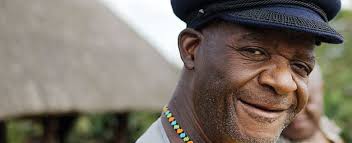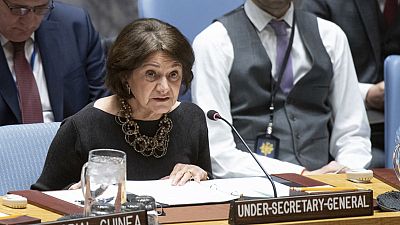Source: Mungoshi's passing enriches heavens' anthology of authors | Daily News

IN his survey of Black English writers from this part of the world that we proudly call home, American author Tim McLoughlin described Charles Mungoshi as “Zimbabwe’s most substantial writer not least because he offers such a penetrating and complex image of the fragmentation of Shona society brought about by years of colonial domination.”
Such was the impact Charles’s pen had on those who read his work across the globe.
Using the power of his writing, Charles — the wordsmith — helped put Zimbabwe on the map, so to speak, along with other authors of his generation such as Shimmer Chinodya, Aaron Chiunduramoyo, Felix Manyimbiri, Tsitsi Dangarembga, the late, Doris Lessing, Yvonne Vera, and Chenjerai Hove, (may their dear souls rest in eternal peace), just to name a few.
After a 10-year-long battle with a neurological condition, Charles took his last breath at Parirenyatwa Hospital on February 16, 2019.
The word about his passing quickly spread like a veld fire on social media and in no time, people around the world plunged into mourning, sharing memoirs of his work and sending heartfelt condolences to the family of one of our most prolific writers.
How ironic that Charles portrayed two of the characters in one of his novels “Waiting for the rain”, as suffering from this condition.
He must have had a premonition. Maybe? Maybe not!
Within minutes of receiving the news about Charles’ death, neighbours, friends, associates and relatives, who were still struggling to come to terms with their loss, made a beeline to his Chitungwiza home to pass their condolences.
I was among those who went to pay my last respects at Charles’s home on Sunday, extending support and comfort to Jesesi and her children, thanking them for supporting Charles through his many years of illness.
Seated next to Jesesi, in one of the rooms that I was ushered into, were July Sharara and his wife.
Despite being five years younger than Charles, July was his best friend (Sahwira Mukuru). Their friendship rubbed onto their wives too, who apart from sharing the same passion for performing arts also became close friends.
For those who remember, July was the dribbling wizard from years-gone-by who mesmerised soccer fans during his heyday when he played for Metal Box, Chibuku and Dynamos.
Charles’s death came as a huge blow not just to Jesesi and their family, but also to Zimbabwe and the literary industry across the globe.
A few months ago, I received a call from the group chief executive officer of Old Mutual Zimbabwe Jonas Mushosho who wanted to meet with me, so that we could have a discussion with the Mungoshi family on the possible sponsorship of a film they wanted to do around Charles’s life. Without hesitation, I agreed to meet up with Jonas and the Mungoshis represented by Jesesi and her firstborn son Farai.
The proposal was for Old Mutual and Nyaradzo to be joint sponsors of the film. It was easy for Jonas to consider a co-sponsorship between Old Mutual and Nyaradzo given the many projects we have done together.
Also because of the soft spot our respective organisations have for the arts, given Old Mutual’ s consistent support for Hifa, while Nyaradzo worked with Extra Large to produce a music album titled “Miti Hupenyu” on conserving the environment. Despite the project being close to our hearts, it unfortunately never saw the light of day.
When I met Jesesi in Madziwa at the late Oliver Mtukudzi’ s funeral, I enquired why she had gone quiet on the project, it was then that she informed me that she had been busy looking after Charles whose health had deteriorated to the point where she couldn’t leave him alone.
At the chapel service held at the Nyaradzo Chitungwiza service centre, Farayi spoke of his mother’s love and strength, putting her life on hold to support Charles as he battled for 10 long years.
It is truly heart-breaking to lose such a gifted and prolific writer at a time when the arts industry is still trying to hold back tears after Tuku quietly left for his higher rewards several weeks ago. In just less than a month, death has robbed us of two talented legends, and again heaven has gained another gentle giant.
Charles leaves behind his wife Jesesi, and five children Farai, Graham, Nyasha, Charles and Tsitsi as well as seven grandchildren.
Most of us interacted with Charles through his literary work in either English or Shona. With a number of his books finding their way onto lists of prescribed texts and some becoming part of syllabuses in schools, colleges and universities, positively impacting the lives of many students.
In a conversation with Mai Palmberg in September 2003 at the Nordic Africa Institute in Uppsala, Charles revealed that it was loneliness that pushed him to become a writer.
“But I always want to think that it was the loneliness, the way I grew up that led to my choice of career. It was not a career that I chose, I think it chose me. Sometime in the 1950s, my father had to move from our village to start a new life of his own at a farm, so most of the time I was alone and when I could read, which was five years after I started school, I could read very well in both English and Shona. I always had books with me,” he said.
Like in the life of most geniuses, you couldn’t miss traces of eccentrics.
Eddie Zvinonzwa, whose book reviews I hardly miss on Sundays, once shared with me the lighter side of Charles’ life.
Apart from sharing the same totem (Dziva) with Charles’s mother, Eddie lived in the same neighbourhood as the author for the past 20 years.
He remembers a day when he saw Charles crossing a busy road and heading towards a footpath that crosses a little stream further down Guzha Shopping Centre — popularly known as Chikwanha — past Cleverland Learning Centre near St Mary’s Mission and hooted at him.
Eddie thought he wanted to walk home and offered to give him a lift home, which he did. After dropping him at his house along Uta Crescent, he headed straight back to Chikwanha.
About 30 minutes later, Eddie says he was shocked to see Charles crossing the road and walking into the busy shopping centre again. That was Charles Mungoshi for you.
Born on December 2, 1947, in a village near Chivhu in Manyene Tribal Trust Land, Mungoshi attended school at Daramombe and St Augustines’ in Penhalonga.
After school, he worked as a research assistant with the Forestry Commission in Penhalonga, and later joined Textbook Sales as a junior invoicing clerk.
From 1975 to 1981, he was employed as an editor at the Literature Bureau and at Zimbabwe Publishing House.
Between 1985 and 1987, he then worked as a Writer in Residence at the University of Zimbabwe from where he then left to become a freelance writer, scriptwriter and editor.
Among the many books he wrote, the award-winning Mungoshi is most popularly known for his genius work in books such as; Coming of the Dry Season (1972), Ndiko Kupindana Kwamazuva (1975), Waiting for the Rain (1975), Makunun’unu Maodzamoyo (“Brooding Breeds Despair”; 1977), Inongova Njake Njake (1980), Kunyarara Hakusi Kutaura? (1983), The Setting Sun and Rolling World (1987), Stories from a Childhood (1989), One Day Long Ago: More Stories from a Shona Childhood (1991), Walking Still (short stories; 1997), The Milkman Doesn’t Only Deliver Milk (1998) and Branching Streams Flow in the Dark (2013).
Despite all this fame and accomplishments, Charles lived a quiet and humble life in Chitungwiza. Often using his neighbourhood of Zengeza 1, Zanamwe Shopping Centre, St Mary’s Police Station and the Prince Edward Dam and Waterworks as his inspiration for several of his literary pieces.
Among other accolades, Mungoshi won the Commonwealth Writers’ Prize for Best Book in Africa twice and was subsequently invited to meet the Queen of England, Queen Elizabeth II.
As one of the few artists who wrote across languages, cultures and the major genres of poetry, prose and drama, Charles was one of the finest writers Zimbabwe has ever produced.
With one of his greatest strengths being the short story, Coming of the Dry Season (1972), The Setting Sun and Rolling World (1987), Stories from a Childhood (1989), One Day Long Ago: More Stories from a Shona Childhood (1991), Walking Still (short stories; 1997) are a testimony of his adept hand with the prose genre.
Zimbabwe’s literary scene is indeed poorer without his powerful voice, for Charles was one of the country’s most illustrious literary voices.
May your dear soul “Musimuvi” rest in eternal peace!
The post Mungoshi’s passing enriches heavens’ anthology of authors appeared first on Zimbabwe Situation.



